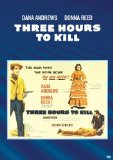| Reviews & Columns |
|
Reviews DVD TV on DVD Blu-ray 4K UHD International DVDs In Theaters Reviews by Studio Video Games Features Collector Series DVDs Easter Egg Database Interviews DVD Talk Radio Feature Articles Columns Anime Talk DVD Savant Horror DVDs The M.O.D. Squad Art House HD Talk Silent DVD
|
DVD Talk Forum |
|
|
| Resources |
|
DVD Price Search Customer Service #'s RCE Info Links |
|
Columns
|
|
|
Three Hours to Kill (Sony Choice Collection)
More-than-competent B oater with an enjoyably dark undertone. Sony's fun Choice Collection vault of hard-to-find library and cult titles, has released Three Hours to Kill, the 1954 Western whodunit from Columbia Pictures starring Dana Andrews, Donna Reed, Dianne Foster, Stephen Elliott, Richard Coogan, Laurance Hugo, James Westerfield, Richard Webb, Whit Bissell, Charlotte Fletcher, and Carolyn Jones. Straightforward in plotting and execution, Three Hours to Kill satisfies as only a confident oater can when we're jonesing for those genre conventions...at the same time giving us a thematically messy undercurrent that's nicely contrasted against the square-jawed whodunit framework. An original trailer is included in this nice-looking color widescreen transfer.
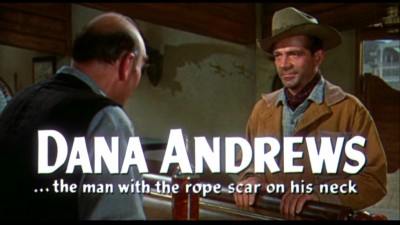
Jim Guthrie (Dana Andrews) rides in nice and quiet to the little town he escaped from three years prior. Walking into Sam Minor's (James Westerfield) bar, he scares the daylights out of the terrified owner; you see, Jim was almost lynched by Sam and Jim's other close friends when Jim was found standing over the body of Carter Mastin (Richard Webb). Carter, Laurie Mastin's (Donna Reed) brother, fought with Jim over marrying Laurie, but Jim didn't shoot him dead―someone else did that night, and he's back to find out whodunit. Close friend and now sheriff, Ben East (Stephen Elliott), who didn't take part in the near-lynching, is sympathetic to Jim's plight, up to a point, and he's willing to give Jim three hours before he'll arrest him, at sundown, if he's still in town. So now Jim has just a few hours to make his former friends very nervous, hoping someone will crack, and expose himself as the real murderer. Red-headed "saloon girl" Chris Palmer wants Jim to take her away from town, while Jim can only think of Laurie, now married (with a three year old son...hmmm...) to Niles Hendricks (Richard Coogan), a prime suspect in Carter's murder, since he wanted Laurie for himself all along.
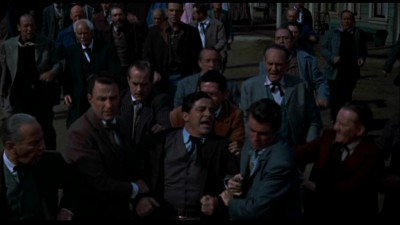
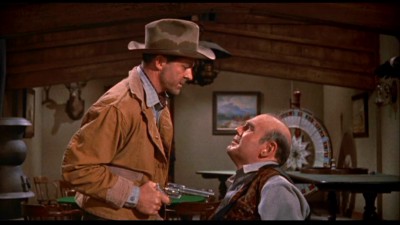
Three Hours to Kill, like so many B productions, can be a fairly interesting outing, outside of the movie itself, just for seeing who in front and behind the camera was on the way up or down. Producer and writer Alex Gottlieb, who provided Three Hours to Kill's story, had a varied, successful producing career, shepheding everything from enjoyable early Abbott & Costello outings (Buck Privates, Who Done It?, Hold That Ghost) to dramas (That Hagen Girl, Stallion Road), to probably his most notable hit, Susan Slept Here, based on his own play, which scored a major hit for Debbie Reynolds the same year Three Hours to Kill came out. Co-screenwriter Richard Alan Simmons cut his teeth on solid B actioners and more upscale comedies and dramas (War Paint, Beachhead, The Private War of Major Benson, Female on the Beach, The King and Four Queens), before moving successfully into television production (The NBC Mystery Movie anthology). Co-writer Roy Huggins similarly was working as a Columbia contract writer when Three Hours to Kill came out; he'd shortly move over to Warner Bros. where his name would be made as the creator and producer of legendary series like Maverick, 77 Sunset Strip and The Fugitive. Writer/director/producer Maxwell Shane (City Across the River, the superlative TV series, Thriller), as well, contributed additional dialogue to Three Hours to Kill.
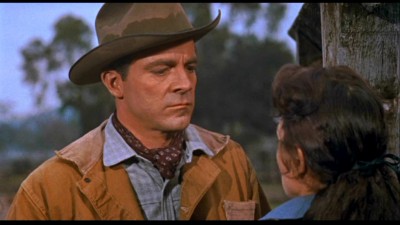
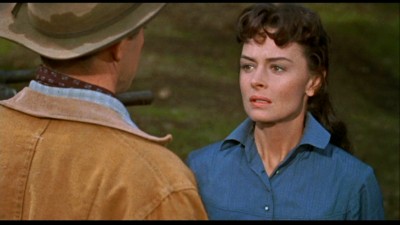
Lead actor Dana Andrews, however, would see the release of Three Hours to Kill as a harbinger of things to come in his rapidly-cooling career. Formerly an A-lister with big hits to his credit like The Best Years of Our Lives, Laura, and Where the Sidewalk Ends, before alcoholism, age, and changing tastes would relegate him to more and more minor projects, Andrews' other 1954 release―Elizabeth Taylor's Elephant Walk―was his last truly A-caliber outing he'd headline. Donna Reed, as well, probably wasn't all that thrilled with co-starring in something like Three Hours to Kill...particularly when she had just won the Best Supporting Actress Academy Award that same year for 1953's From Here to Eternity. Despite that prestigious win, she found herself falling into undistinguished parts in movies like The Far Horizons, The Benny Goodman Story, and Beyond Mombassa, before she had enough and took her career into her own hands and created one of television's most beloved sitcoms, The Donna Reed Show. Three Hours to Kill's solid supporting cast was certainly familiar to 1954 movies audiences, as well, with guys like Whit Bissell, Stephen Elliott, and James Westerfield on their way to decades-long careers in movies and television, with TV-familiar faces like Carolyn Jones, Captain Video's Richard Coogan, and Captain Midnight's Richard Webb also lending good support.
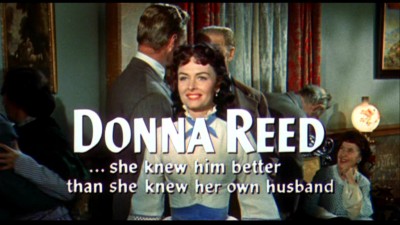
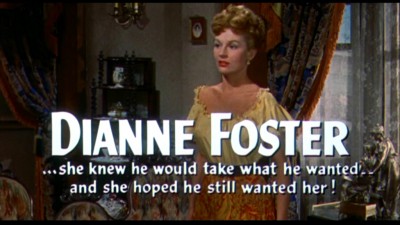
What recommends Three Hours to Kill, outside that talented crew and cast, is its complete, unaffected, un-self-conscious professionalism. Nobody likes a big, splashy, bloated A-list epic or melodrama or actioner from this time period more than me, where the movie's excesses become its main attraction, regardless of the movie's overall worth. That's why something small and perfectly-done like Three Hours to Kill can come off as so completely satisfying within its own limited means, because it's so thoroughly accomplished in its aims. It's not trying to be deeper than it is, or ironic; it isn't commenting on itself or its genre. It's just basic storytelling, done with a completely straight face and expert precision. Interestingly, Three Hours to Kill has a decidedly grim undertone to its story, with thematic developments that suggest complicated moral dilemmas (pre-marital sex and illegitimate children) as well as some surprisingly risqué material (yes...Laurence Hugo is having an open three-way with cheap babes Charlotte Fletcher and Carolyn Jones. Lucky bastard).
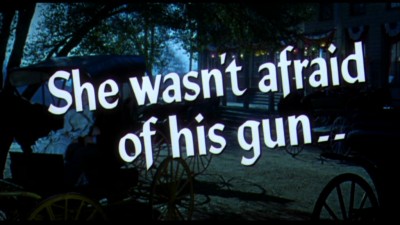
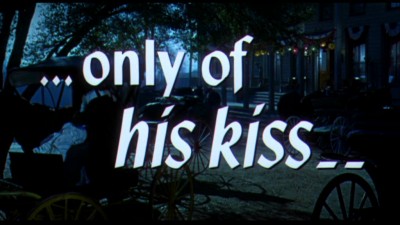
Of course, the central fulcrum of the storyline is the movie's most bleak aspect: a haunted, hunted man almost hanged by his friends on a drunken whim, forced to live out his life with the physical scar as well as the accompanying psychological ones. I rather like how Three Hours to Kill (clever title, too) doesn't try and explain why those friends of Andrews would string him up so quickly (there's a great shot of Andrews being frog-marched to hanging tree, with the mob screaming for blood), while I admired the movie not copping out with a "happy" ending―how Andrews rides out of town, and with whom, is true to the movie's unvarnished simplicity. Inbetween, there are plenty of fisticuffs (a nice one on a scrubbed-filled hill) and crazy stunts (Andrews getting repeated yanked back by his neck-rope trailing behind his runaway wagon) to keep the less-demanding oater fans happy, too.
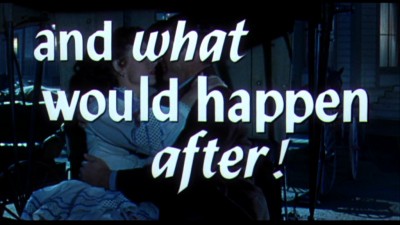
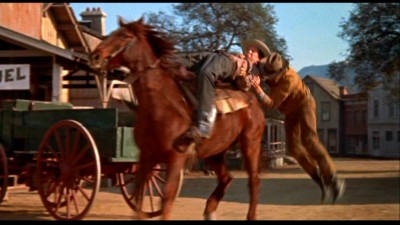
The DVD:
The Video:
Not bad at all. The anamorphically-enhanced, 1.85:1 widescreen transfer may be a tad dark and grainy at times, but overall, this looks good, with a sharpish image and ruddy color.
The Audio:
I had a hard time understanding some of the dialogue at times; it felt a little low against the more boisterous music and effects track. Otherwise, the Dolby Digital English split mono audio is okay, with no subtitles or closed-captions.
The Extras:
An original trailer is included.
Final Thoughts:
An unexpected little gem: curt, taut, and with a welcome (and depressing) edge. I wasn't counting on Three Hours to Kill to deliver anything but typical B oater goods, yet when it did just that―expertly, with no screwing around―it immediately clicked for me. Very nice. For fans of this genre, and of the stars, I'm highly recommending Three Hours to Kill.
Paul Mavis is an internationally published movie and television historian, a member of the Online Film Critics Society, and the author of The Espionage Filmography.


|
| Popular Reviews |
| Sponsored Links |
|
|
| Sponsored Links |
|
|
| Release List | Reviews | Shop | Newsletter | Forum | DVD Giveaways | Blu-Ray | Advertise |
|
Copyright 2024 DVDTalk.com All Rights Reserved. Legal Info, Privacy Policy, Terms of Use,
Manage Preferences,
Your Privacy Choices | |||||||









